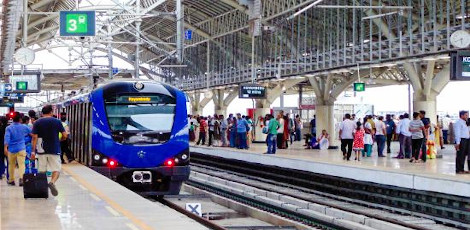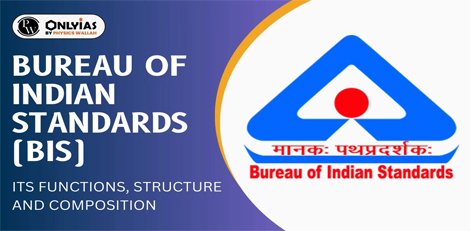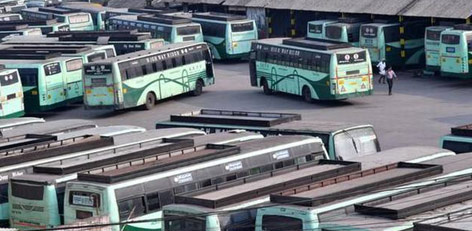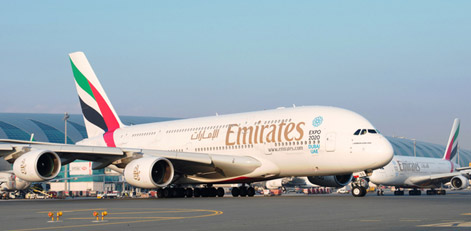No. of views : (3755)
Withdrawal of Rs 10 Lakh a year may attract 3-5% tax:Finance Ministry
Posted on: 11/Jun/2019 11:24:02 AM
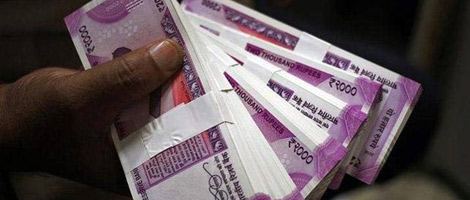
The central government is keen to push the concept of the digital economy in operation through various measures. As one of the initiatives towards this, it is thinking of introducing a tax of 3-5 per cent on cash withdrawal of Rs 10 Lakhs in a year, a move to discourage cash usage in the economy and resultant black money.
It is gathered from the official sources said discussions have been held internally on the fallout of such a move. The committee had submitted the report to Prime Minister Narendra Modi.
The proposal of withdrawal cumulative Rs 10 Lakhs a year can attract 3-5 per cent tax going around in the Finance Ministry may take shape in the Budget to track high-value cash deals and make digital payments mandatory.
This is an initiative towards the digital economy and a move to discourage cash usage in the economy and resultant black money. Thus, paying a tax of Rs 30,000-50,000 for Rs 10 Lakhs annual withdrawal will be seen as a loss, the government thinks and feels this will discourage large cash transactions. The official sources informed that the tax may be from 3-5%.
Paving a way for this, as a step towards this, the Reserve Bank of India, earlier this week, waived the fee currently imposed on banks for using its NEFT/RTGS payment servers. The central government also said it was setting up a panel to review charges imposed by banks on ATM withdrawals. RBI said it was doing so to boost digital transactions.
Yet another source observed: "Why should someone withdraw over Rs 10 Lakhs for cash transactions when digital payments are being encouraged?".
The proposal is at a discussion level but has found favour for being a step towards a digital economy and tracking transactions. Sources said this is a global practice. Even in Pakistan a withdrawal of more than Rs 50,000 attracts such a tax.
During 2005-2008, the UPA government imposed a tax on withdrawals of more than Rs 50,000 from current accounts for detection of unaccounted money in the absence of alternative methods.
In this regard, in the year 2017, a high-level committee on digital payments in 2017, headed by Chandrababu Naidu, the then Chief Minister of Andhra Pradesh, had suggested a tax to discourage cash transactions, a cap on the maximum allowable limit for large-size cash transactions and complete abolition of charges on card payments to incentivise digital transactions. The committee had submitted the report to Prime Minister Narendra Modi. It had suggested "considering levy of banking cash transaction tax (BCTT) on transactions of Rs 50,000 and above."
It was expected that it would not impact day-to-day withdrawals and will deter citizens from clearing out their bank accounts. The Finance Act 2017 prerescribed imposing a penalty equal to the transacted amount on those who violated the rule restricting cash transactions. It provides that no one can deal in cash in excess of Rs 2 Lakhs in a single day, in respect of a single transaction or transactions relating to one event or occasion barring a banking company, post office savings bank and cooperative bank.
To curb large cash transactions and discourage black economy, then Finance Minister Arun Jaitley had in the 2017-18 budget proposed to ban transactions of over Rs 3 Lakhs a day. This limit was lowered to Rs 2 Lakhs through an amendment to the Finance Bill 2017 that was later passed by Parliament.
In another related measure, the Finance Act said any capital expenditure in cash exceeding Rs 10,000 shall not be eligible for claiming depreciation allowance or investment-linked deduction. Similarly, the limit for revenue expenditure in cash has been cut to Rs 10,000 from Rs 20,000.




